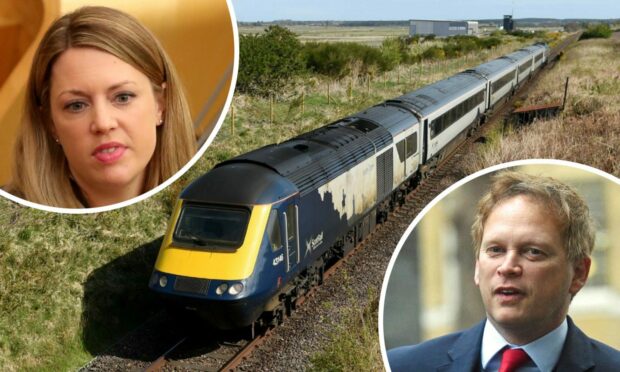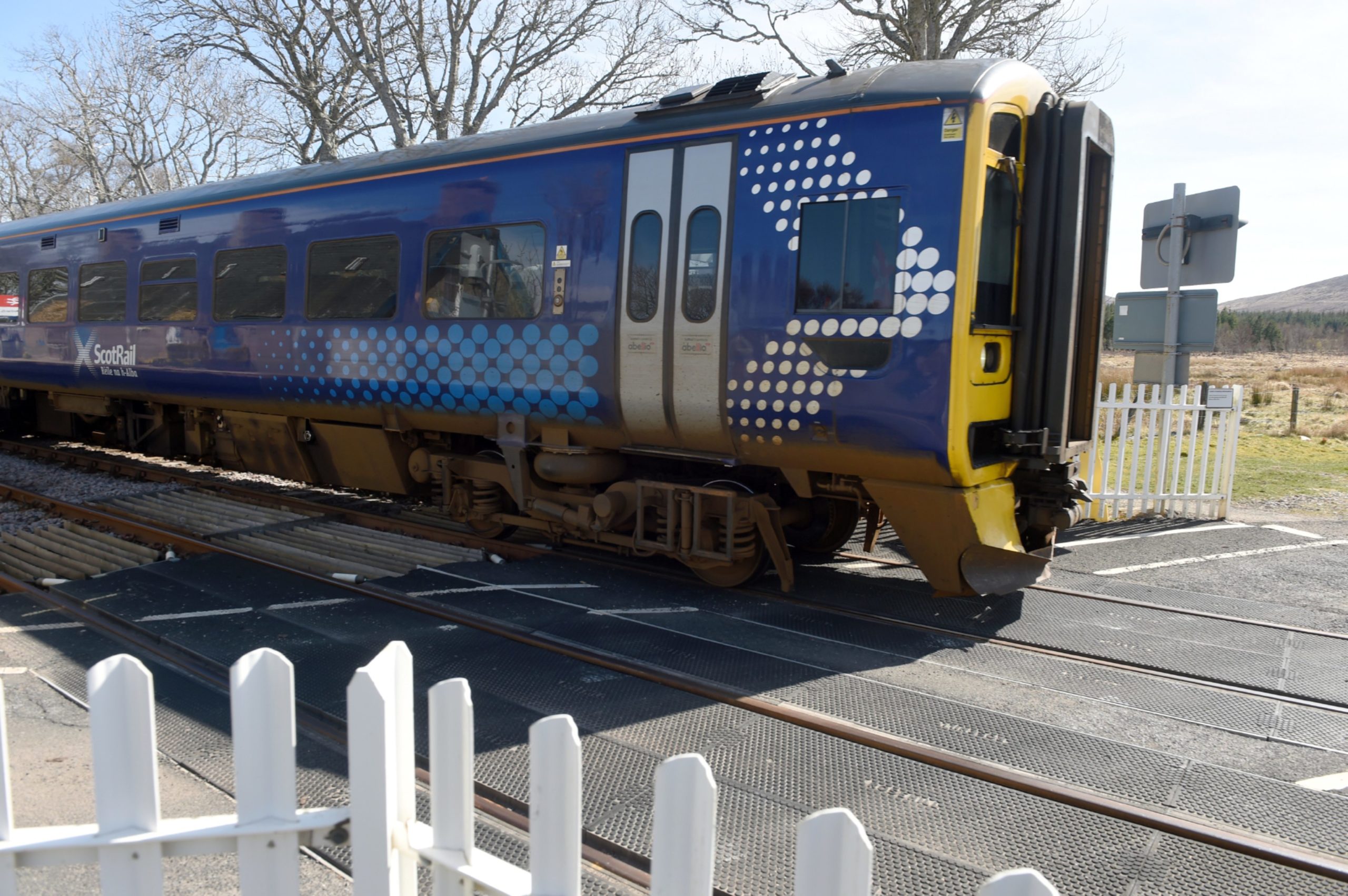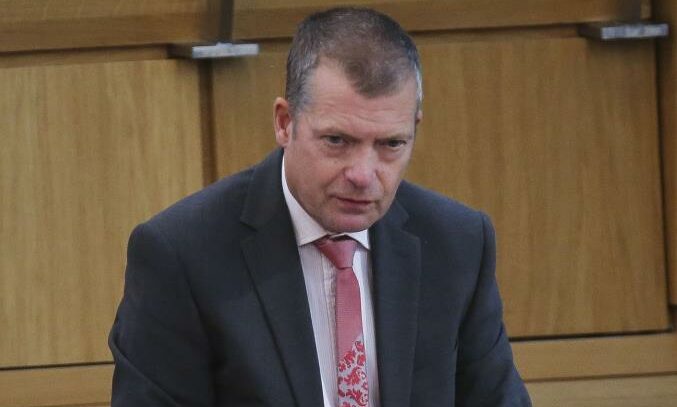Scotland’s railways ground to a halt with staff strikes planned over three days, leaving commuters in Tayside and Fife stranded and wondering who is responsible.
The biggest walkout in 30 years follows a major ScotRail pay dispute which was only resolved earlier just weeks earlier.
As Tory transport chief Grant Shapps tries to pin the blame for upheaval on trade unions, and the SNP’s transport minister Jenny Gilruth points at Westminster, rail passengers are left wondering who is actually in charge of fixing the mess.
Is the SNP responsible for trains in Scotland?
The SNP took control of the trains in April this year when ScotRail was officially nationalised.
The Scottish Government – and Fife MSP Ms Gilruth – then bore the brunt of an immediate pay row which saw drivers refuse to do overtime, leading to the introduction of a reduced timetable.
Not long after that conflict came to an end, up to 90% of train journeys were slashed in a wider dispute.
This time it is Network Rail staff who are on strike in a bitter dispute over pay, working conditions and potential job cuts.
Network Rail receives subsidies from Holyrood but do not fall under its control. So the SNP says it is not their responsibility to solve this crisis.
Workers agreed to take industrial action on Tuesday, Thursday and Saturday this week.
Tayside and Fife services were immediately hit throughout the week because Network Rail staff did not work overnight on days they walked out.
Should the Tories take responsibility?
When ScotRail workers were on strike, Scottish Tory leader Douglas Ross demanded Ms Gilruth should do more to intervene.
However, another Tory, Graham Simpson, then claimed the Network Rail strikes were more “difficult” for Westminster to address.
UK Tory transport chief Grant Shapps also claimed it was not his responsibility to meet unions.
Labour leader Keir Starmer claimed Prime Minister Boris Johnson had not “lifted a finger”.
What does the Scottish Government say?
Ms Gilruth demanded her UK counterpart find a resolution to the strikes “as quickly as possible”.
The Fife MSP urged Mr Shapps to push for a fair pay rise and said Tory ministers were being “motivated by ideology”.
Holyrood finance chief Kate Forbes told Mr Shapps to help push forward negotiations and warned striking workers have been under “immense pressure”.
However, the SNP were accused by rivals of dithering when it came to staff refusing overtime north of the border recently.
Reductions in services meant commuters going to Dundee and Perth were unable to travel late at night.
Even when extra trains were put on to allow Scotland fans to get home from Hampden, Dundee still missed out.
But when being grilled over the cuts to services, Ms Gilruth responded by declaring: “I don’t drive the trains.”
At the time, she also declared that she would not be getting involved in negotiations.
What does the UK Government say?
Senior Tories have claimed Network Rail cuts are necessary as they aim to modernise the service.
Boris Johnson warned he will “not give in” to the demands of trade unions despite the chaos being inflicted on passengers.
He has accused Keir Starmer of backing the strikes and during Prime Minister’s Questions said the Labour leader had not spoken out against them.
During an interview on Tuesday, Graham Simpson branded the rail unions “militant”.
The Tories north of the border have urged the SNP and Scottish Labour to stand against the strikes.
What do striking staff want?
Rail workers want improved pay due to soaring inflation and a cost-of-living crisis.
The RMT trade union is also striking to prevent proposed cuts which they claim could decimate the workforce.
The union’s Scotland organiser, Mick Hogg, warned up to 3,000 jobs could be lost under Network Rail’s current plans.
He indicated staff would be open to a 5% pay increase similar to the offer given to ScotRail employees recently.
Network Rail estimates up to 1,800 jobs are likely to be cut. But the group also says many workers will step back voluntarily with redundancy packages.
How can I travel around?
Commuters who usually journey by train will be forced to take the bus or drive this week due to cancellations.
With disruptions throughout the week even on days when staff are working, it’s best to check ScotRail’s timetables online to see when you can travel.





Conversation